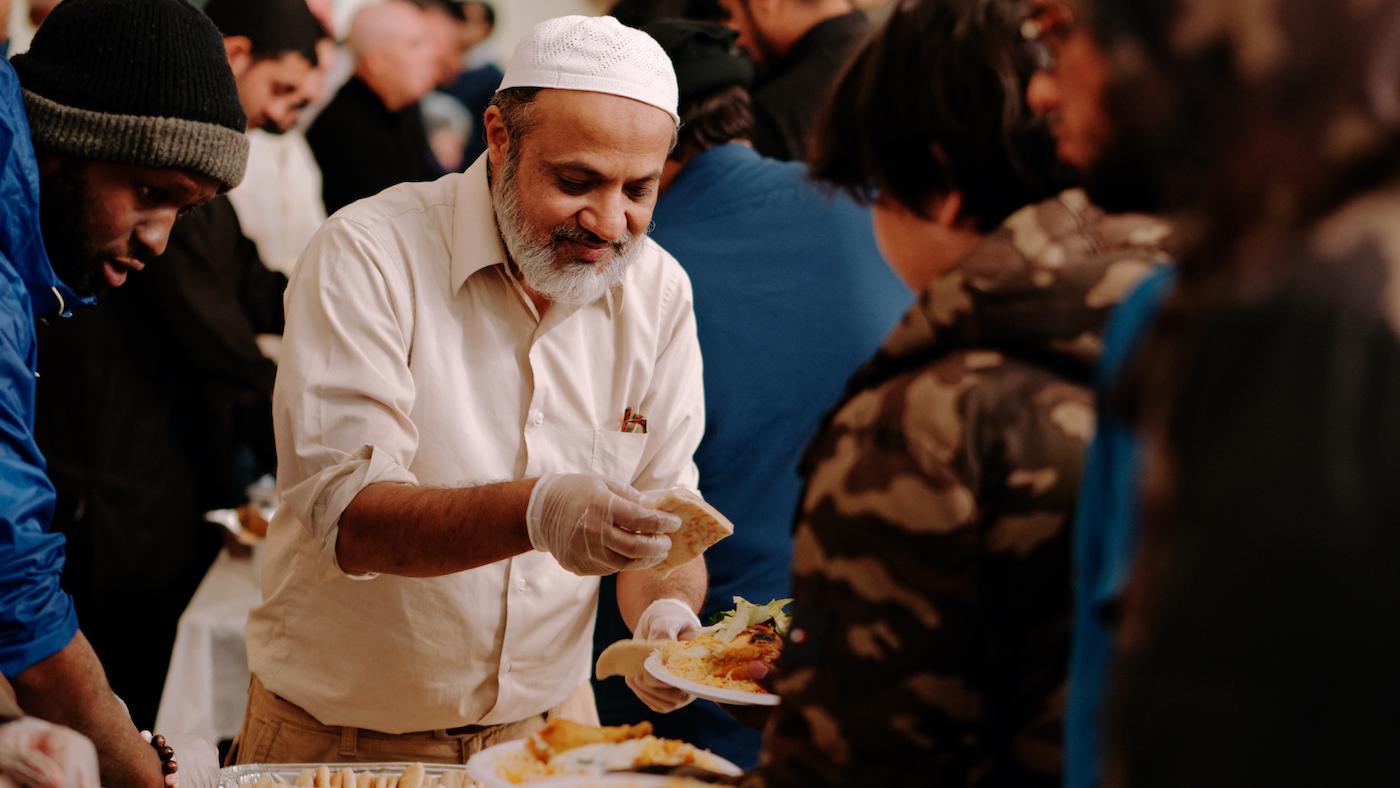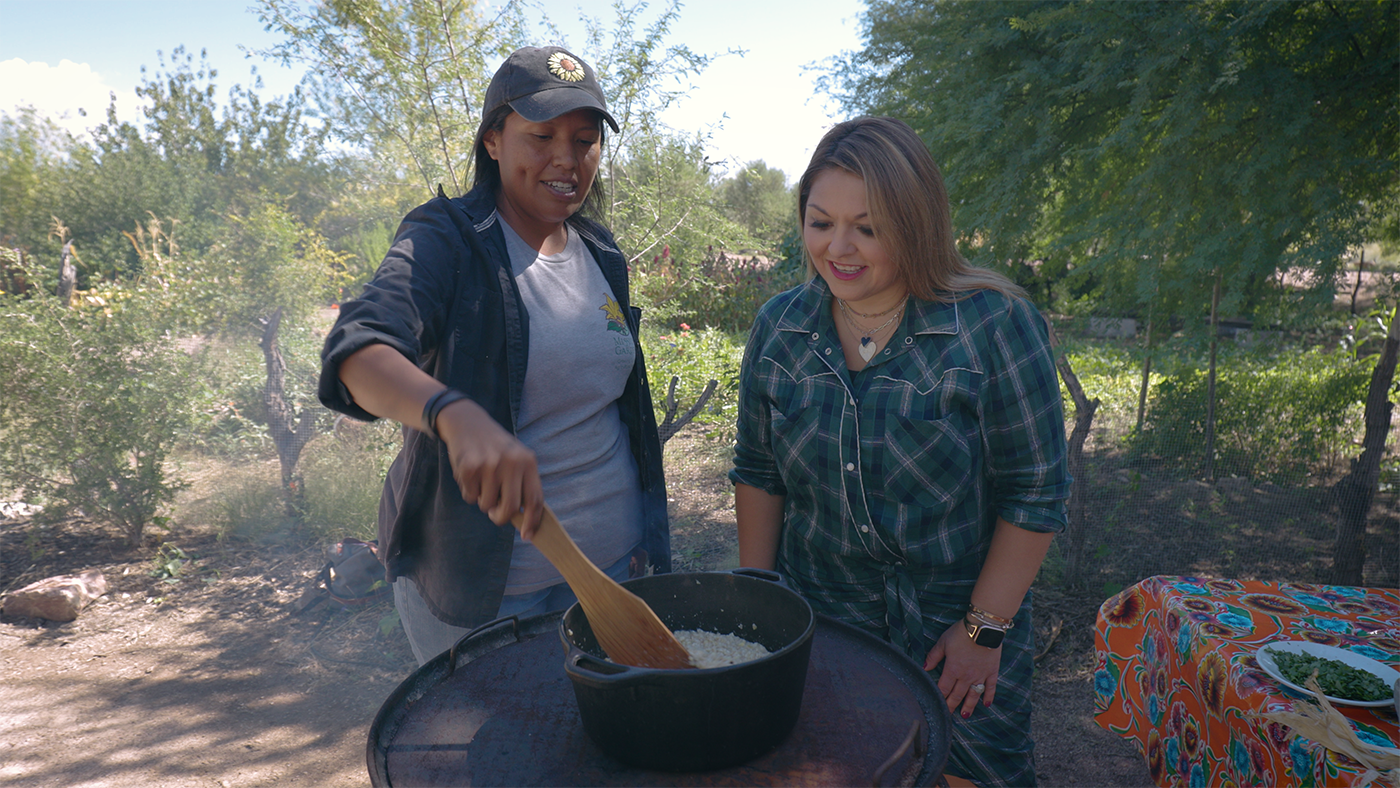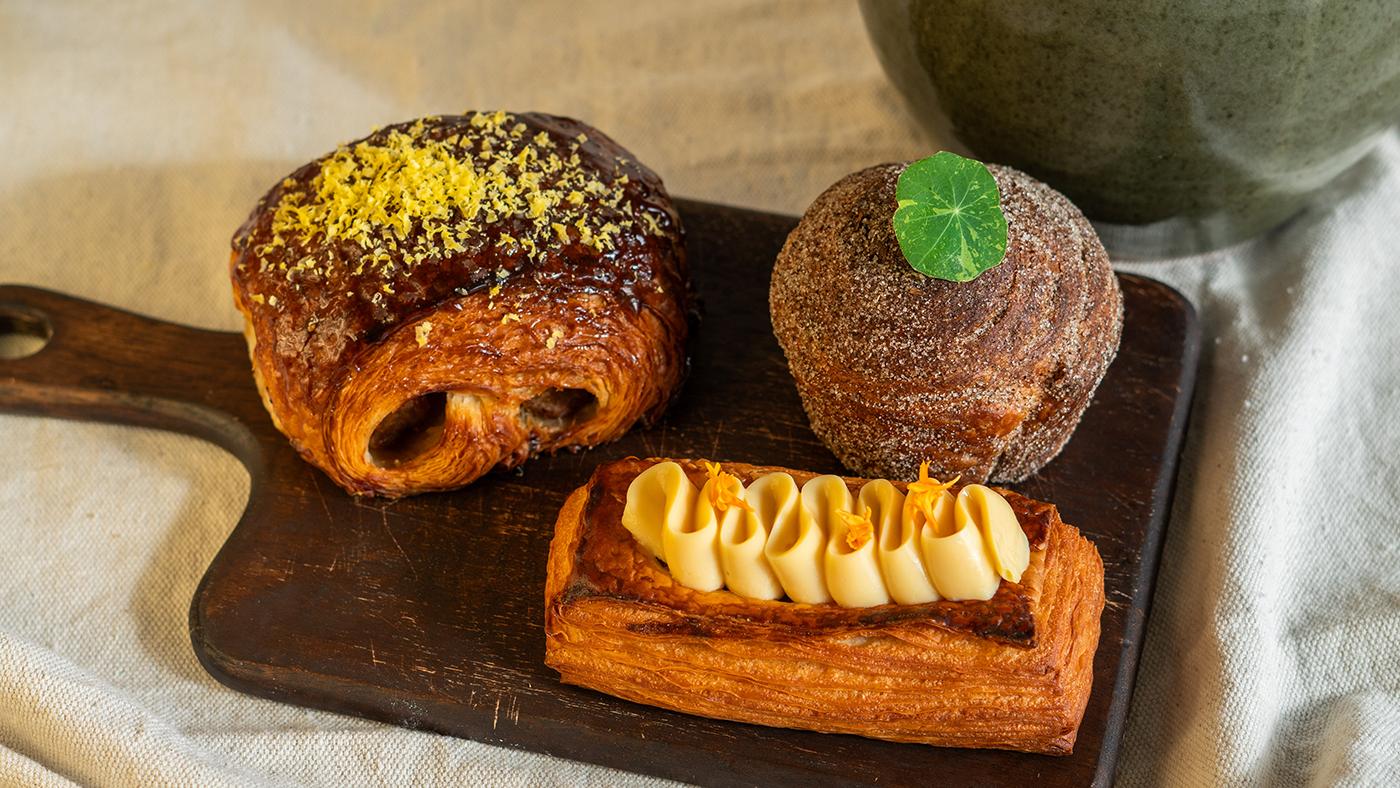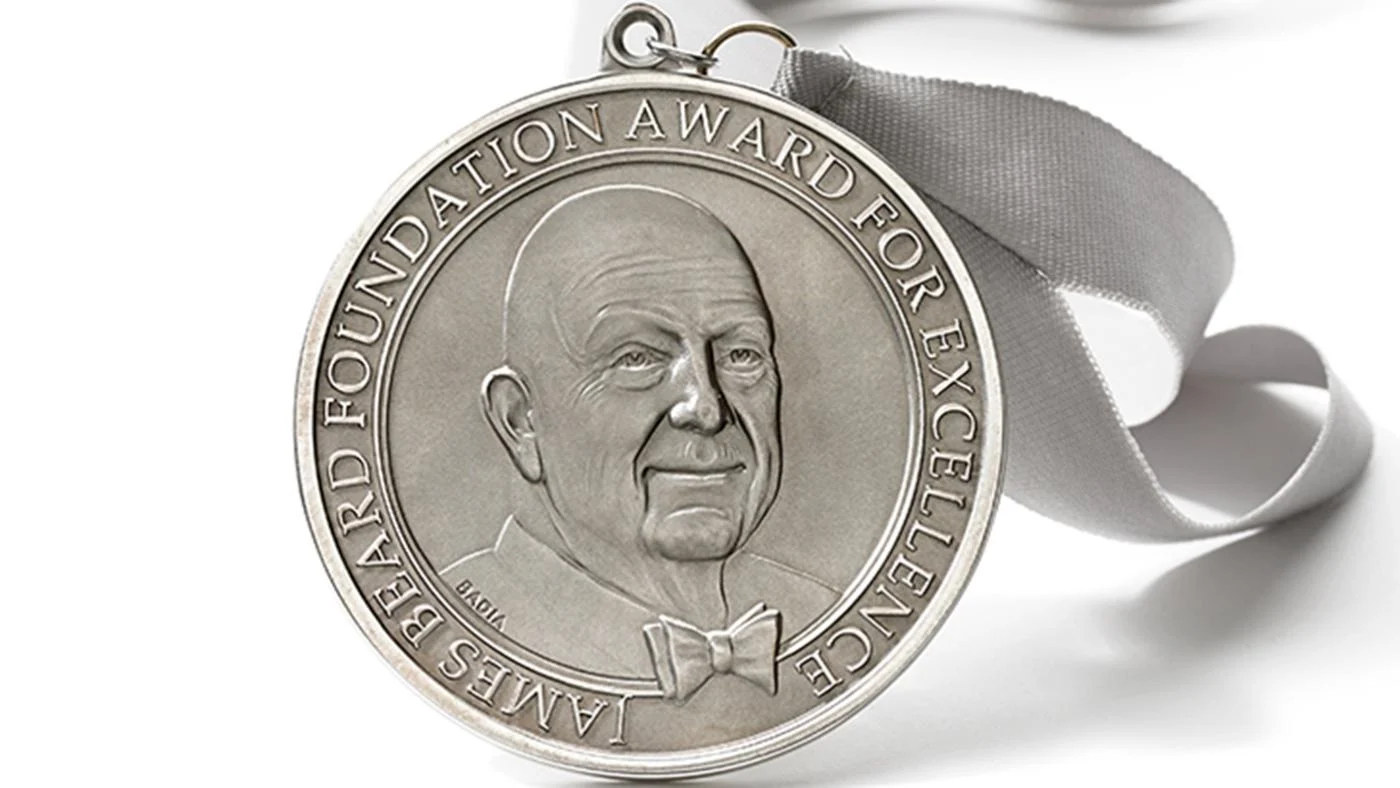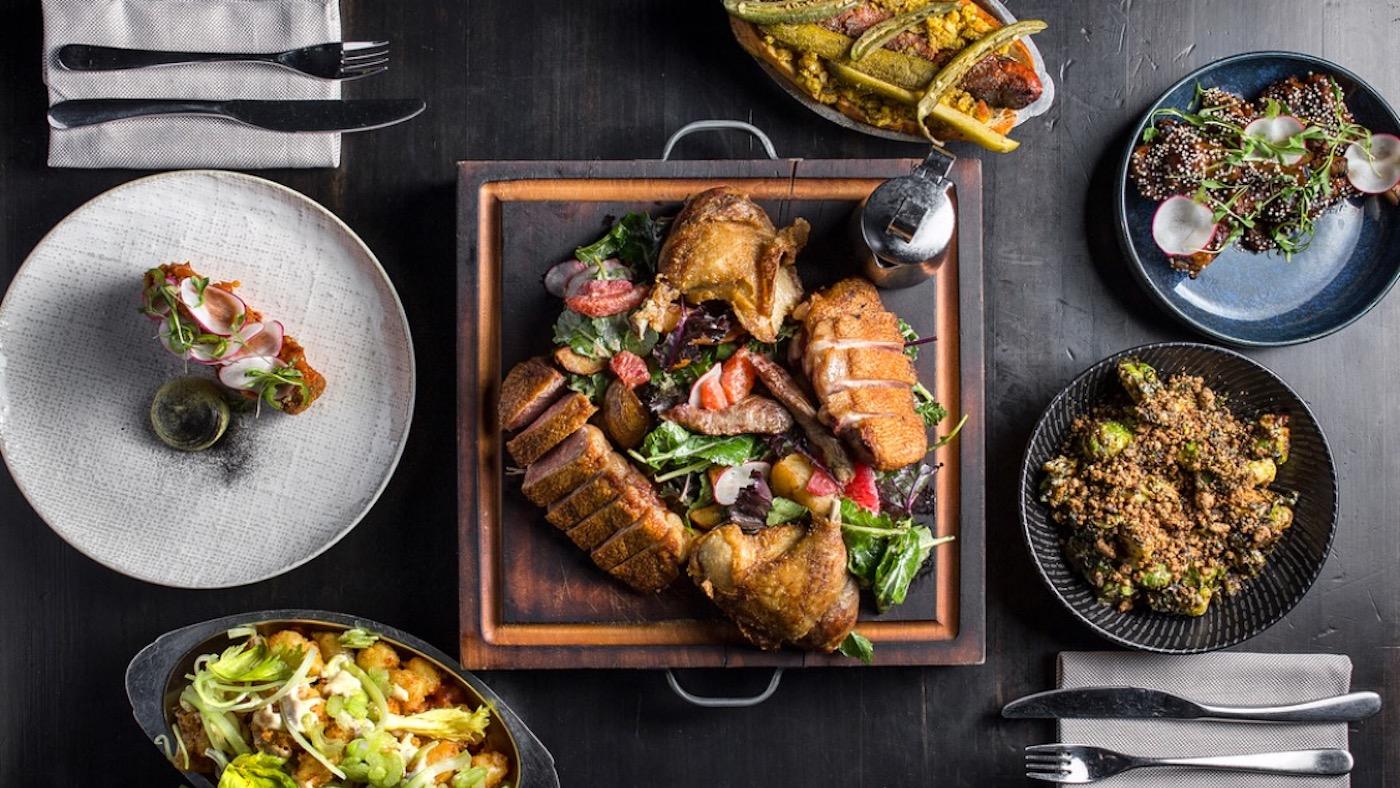A Q&A with Chef on the Rise Alisha Elenz
Samantha Nelson
October 27, 2022
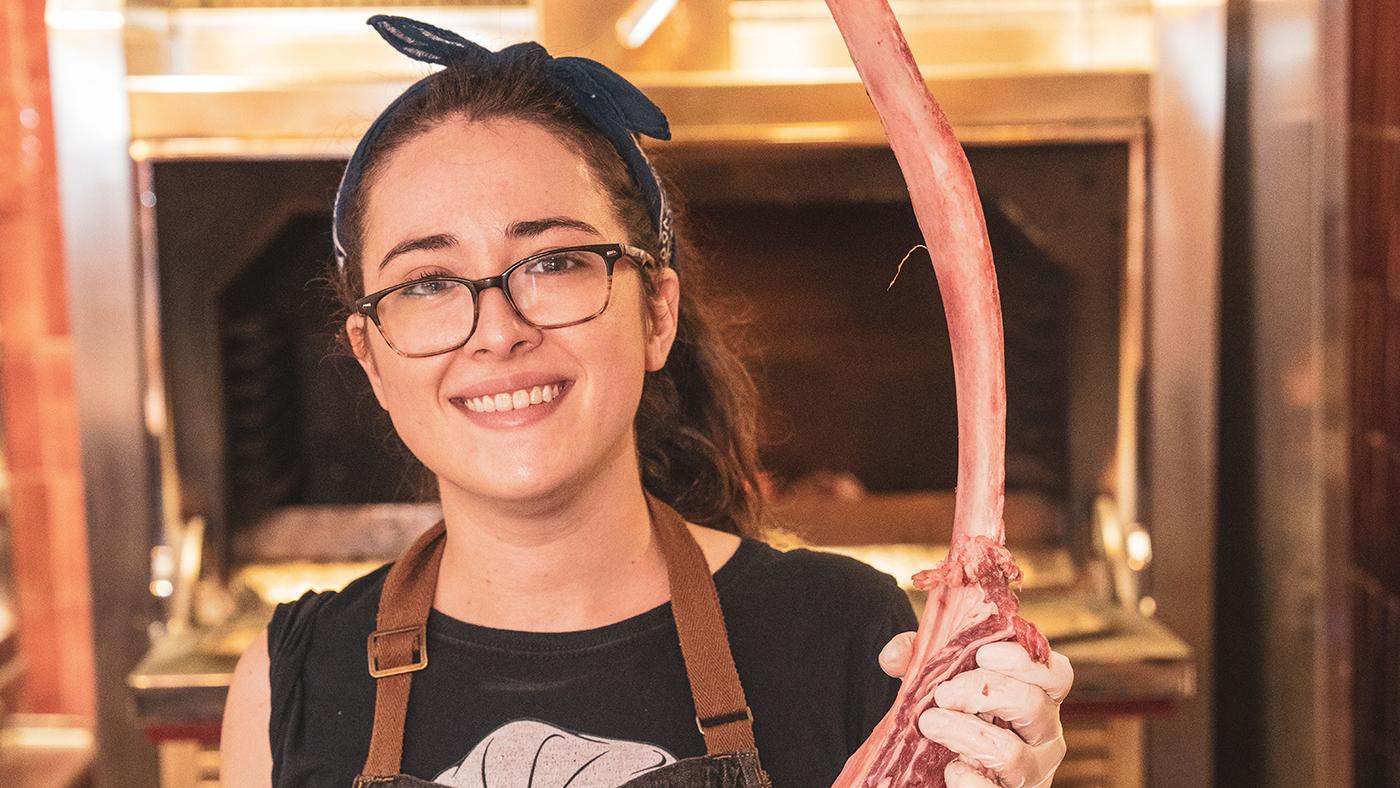
Get more food stories and news by signing up for our Deep Dish newsletter.
Palatine native Alisha Elenz got her start working in restaurants at age 18 as a cashier at Pete’s Pizza, her uncle’s restaurant in Rogers Park. She loved it so much she started staging—working as an unpaid intern for chefs—at the now-shuttered bellyQ in the West Loop. A decade later she’s back in that same space as chef de cuisine of Bambola, which opened in September in a new building where bellyQ once stood. The 28-year-old has already been nominated for a James Beard Award (in 2019 and 2020) and served as an executive chef, helping mfk. earn its Michelin Bib Gourmand status, but she wants to keep pushing her career to the next level. WTTW Food chatted with Elenz about her early experiences, her perspective as a young woman chef, and her new venture at Bambola.
This interview has been edited and condensed for clarity.,
How did you grow with mfk?
I started at mfk. maybe seven or eight months after they had opened. They had seen a huge turnover where a lot of their chefs left. I started as a prep cook. I was so young when I got promoted. I was 22 when I was a sous chef there, and then 23 when I became the executive chef. I definitely learned the business side of running a restaurant because we couldn't afford an accountant or people to do payroll and HR.
What did that experience teach you?
It was a restaurant in a basement with no walk-in and no freezer and not a lot of money to buy all this cool crazy equipment. Today [at Bambola] one of our cooks was freaking out because he didn’t have the oven to steam the lobsters. I said, “Well there's a million ways to steam things. You don't need an oven,” because I came from an environment where if you didn't have something, you had to figure it out.
Does your youth make it difficult to get people to respect your decisions?
That's a huge thing, along with being a woman, and just not being a white cis male with a bunch of tattoos. There's a lot of issues in this industry with the way people get talked to and treated. I can tell when people are like, "Why is she my boss?" And then after a little while working together, I'll see the light bulb go on, "Oh, OK, I get it." It is annoying that I have to constantly prove myself to people. But I don't go out of my way to do it. I don't do anything extra. I don't suck up to people. I just come in, I work really hard, I do my job, and I kind of let people see the results.
Do you think being a young woman gives you a different perspective on the industry?
I moved up so quickly that it was a positive, but also negative kind of thing. There's a lot of things that I didn't get the time to learn, and I kind of had to learn on the side. A lot of people don't become sous chefs until they're in their late twenties. You really have to work your way up, earn it, prove yourself. I didn't have years of getting talked down to by chefs, and I feel like I've been part of trying to break the cycle. I realized pretty quickly I can't do things by myself and I need my team to be able to be successful and to keep growing. You do need to ask for help when you need help.
What was it like to receive a James Beard Award nomination?
It was very surreal. I never expected that to happen and I don't think anyone around me expected that to happen, either. I was just super overwhelmed. I was 24 and I was having probably one of the hardest years I ever had. I was going through some pretty rough personal stuff at the time that had literally happened the night before and I woke up the next day and everyone's like, "Congratulations, we're so proud of you" and I'm like, "For what? My life is a mess. What are you talking about?" I really didn't handle the James Beard Award well. I should have appreciated it more, but I was so shocked and I have really bad imposter syndrome so I didn't really understand why it was happening or what people were seeing.
Have you been able to come up with a better balance now between your work and your personal life?
I think the pandemic definitely helped me with that because I got laid off from mfk. I probably would've stayed there forever and I needed to move on to a different experience and so I could push myself further in my career. I was still working throughout the whole pandemic, but I wasn't working 90 hours a week anymore. It forced me to take a step back and realize I need to see my friends, I need to see my family, I need to have hobbies. I was in the hospital when I was 24 because I was so dehydrated and depleted of nutrients. I said, "But I'm 24." And they're like, "Yeah, but you still need to drink water and sleep and eat. If you don't do those things, then you're not going to make it to 30.”
What brought you to Bambola?
This is what I've been looking for. It's almost like dating. You kind of have to look around to find out what lines up with what you want. The company [Bonhomme Hospitality, which also owns Beatnik, Porto, and Mama Delia,] is super intense and really competitive, but I'm finally back to doing the food that I love. Spanish food is my favorite cuisine to cook. I'm not technically cooking Spanish food right now, but I'm doing the Middle Eastern/Mediterranean side, which kind of falls into the same hub, and I still get to learn things from [executive chef Marcos Campos]. He's the best executive chef I've ever worked for. I don't want to jinx it, but I feel like this could be home for a while. I haven't felt at home since I left mfk. Another thing I really love about this company is there's so much opportunity for people to grow. I want to be somewhere where I can just keep growing all the time.

